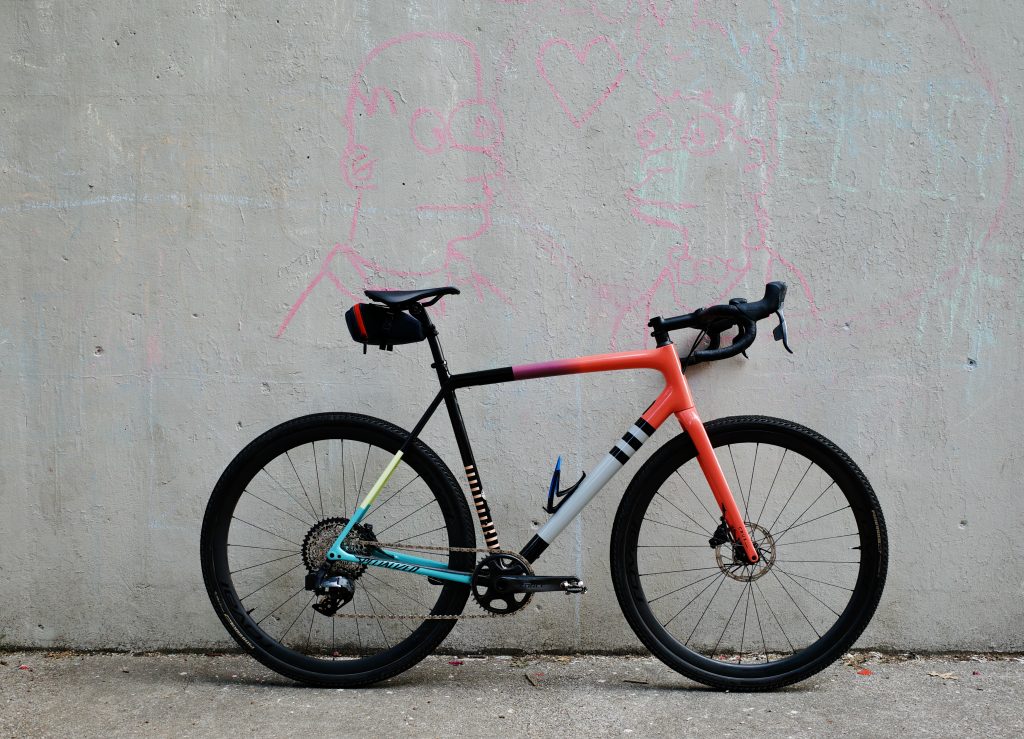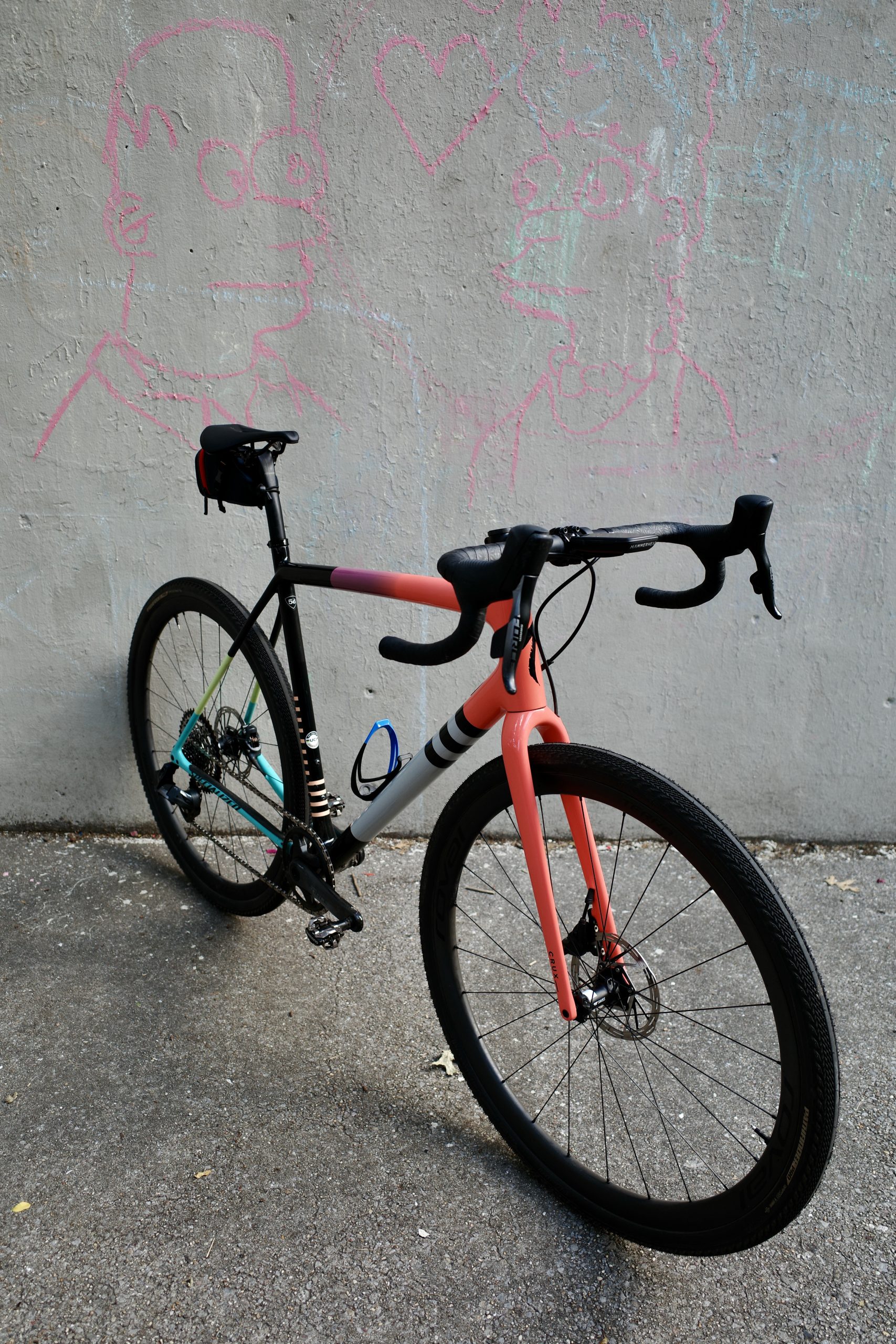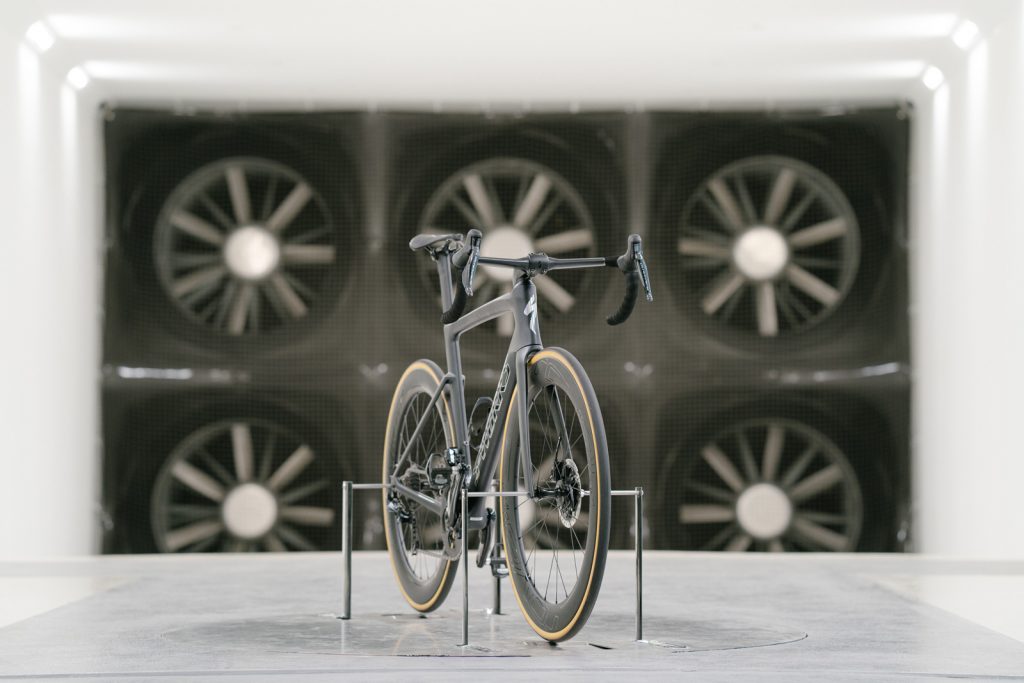Test Ride: Specialized Crux Pro Gravel Bike
This bicycle handles beautifully on- and off-road

Taking the Crux Pro from the revered cycling innovators at Specialized out for a ride requires factoring in some extra time. Sure, you’ll log personal bests on steep segments and surprise even yourself with the speed of the bike. This is a bike that simply wants to go fast, whether you’re hopping roots on a dusty single track or hammering on the tarmac with your skinny-tired road riding friends. That extra time is for agreeing with the many suddenly vocal onlookers that it’s as fast as it looks.

The Crux line-up traces its roots to cyclocross racing, where riders rip short but technical laps around multi-surfaced (think dirt, mud, grass, sand and even snow) courses with the occasional dismount to leap over an obstacle. For 2022, Specialized tweaked the geometry and tire clearance to better suit the needs of the fast-growing gravel race scene where riders are still seeking speed over variable terrain without the tight confines of a cyclocross course. That means wider tire clearances (up to 47 millimeters wide with road-standard diameter 700c wheels or 2.1 inches wide with the smaller in diameter 650b wheel popular for more technical trails) and a geometry that blends quick handling and greater stability at high speeds.

Gravel bikes, especially at the performance level of the Crux Pro, are versatile. Swap the stock knobby gravel tires with skinny road tires and you’ve got a speedy steed that can hold its own among dedicated road bikes. Max out the clearance on the tires and you can tackle rugged single-track like you’d pedal into on a hardtail mountain bike.

The brand believes in gravel as a category that can hold up more than one bike model. The Diverge line-up of bikes features more bells and whistles, like in-frame storage and shock-absorption above the head tube. If the Diverge is for the maximalist looking to tack on bike-packing trips, the Crux is on the opposite end of the spectrum. The result is a singular focus on the ride, and it’s felt the moment you turn the pedals of the Crux Pro. From the jump, the bike is incredibly quick to accelerate. That’s partly due to its paltry 825-gram frame weight (about 20% lighter than all other bikes in its class) and the flex pattern of the carbon frame. It’s stiff in all the right places, so you’ll get the most out of every pedal stroke. A significant benefit of the weight is evident during climbs: riding uphill is a breeze and technical off-road climbs and descents are easily navigated thanks to the nimble handling.

The Crux Pro frameset (and the rest of the Crux family including the S-Works Crux) is the product of extensive research and development, building on the carbon materials, construction and design innovation of the road-focussed Aethos—the lightest factory disc frameset ever made. Like the Aethos, the Crux frameset utilizes longer continuous plies of carbon to create an unprecedented stiffness-to-weight ratio.

We spent as much time off-road with the Crux as possible. It really shines when ditching smooth pavement for gravel, dirt roads and winding singletrack. For years riding fast and far on rougher terrain with drop bars and road-inspired geometry meant constant bone rattling chatter. The contemporary class of gravel bikes dampens the rattle thanks in part to improvements in carbon frame and component construction and the ability to run much lower air pressure with tubeless tires. The Crux seemingly floats over miles of steep gravel mountain roads and tears through flowing single track trails popular with mountain bikers.
Of course accessing rough roads presents a unique challenge in New York City. Taking the train or riding to the mountains requires logging miles on tarmac. While this could be cumbersome on heavier, less lively gravel bikes, the Crux Pro behaves like a competitive road bike, making these smooth roads a joyful warm up or pleasurable dedicated ride, rather than a slog.

There’s no getting around it, quality bikes are expensive. Like just about everything else, the cost of bikes is quickly on the rise. Partly due to macroeconomic forces like inflation as well as labor and material costs, the bike industry has seen a major spike in demand since the early days of the pandemic. While this is beginning to level out, there’s still a major shortage of components, materials and shipping capacity. Thompson estimates that transporting a bike via container ship is between 10 and 20 times more expensive than it was pre-pandemic.
The Crux Pro retails at an intimidating $8,200, but the value is there. With its design and materials innovation, the frameset is in a class of its own as far as gravel bikes go. You’ll feel the difference in ride quality, speed and overall handling. Then, there are the high-quality components. The Crux Pro is kitted out with Sram’s dependable and crisp electronic Force 1 eTap AXS hydraulic disc groupset (yes, you can connect your drivetrain to your phone for firmware updates). The lightweight and tough Roval Terra CL Disc wheel-set is compatible with the widest of tires you can run on the Crux Pro. With the Crux Pro, you’re getting what is essentially the bike equivalent of a Porsche 911 lifted with off-road tires.
There are lower price alternatives to gravel riding in the Specialized line-up, even one that packs a nearly equivocal punch. The Crux Comp comes in at $4,200—which is by no means a budget bicycle. However, the bike features the same exact high-grade carbon frame and geometry as the Crux Pro with a lower tier set of components (and a tamer paint scheme). For a wider range of price points, visit the Diverge line-up, where bikes start at $1300.
Hero image by Hans Aschim












